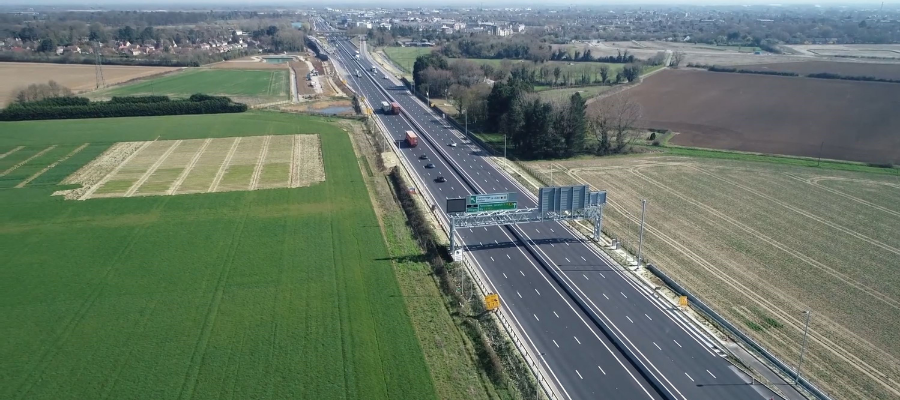🕒 Article read time: 2 minutes
Artificial intelligence could deliver road projects far faster, says Highways England

Britain’s biggest road projects could be delivered faster and more safely, according to Highways England, by using what it describes as a “trailblazing form of artificial intelligence (AI)”.
The innovative initiative was trialled on the £1.5 billion upgrade of the A14 in Cambridgeshire, with up to 85,000 drivers benefitting each day following the new 12-mile bypass opening in December, with the remaining 21-mile stretch being upgraded to three lanes in May.
Since work started on the A14 in November 2016, the A14 integrated team of companies and contractors working on the project looked to create a uniform way of collecting data, including launching an A14 app which staff could use to record both hazards and best practice. At its peak, some 4,500 observations were submitted in one month.
With such a wealth of information available, from health and safety observations to information about vehicle movements and commercial activity, an advanced AI was used for the first time on a roads project. The £70,000 initiative generated a daily risk profile based on the data it had collected, identifying which days were higher risk and why.
The model was built using these profiles as an indicator for risk, with its findings complemented by the project’s incident register, planned activities, working patterns, job roles, and external factors such as the weather. The development team explored the findings to look into what separated days with ‘harmful features’ from those without them, developing 135 of these ‘features’ which the model could then explore and prioritise, based on their likelihood. These ranged from working for more than nine hours to working following heavy rainfall.
Looking to identify these high-risk days, the AI was used as a pilot with 75 per cent success – a remarkable result following an initial period of research. An unexpected outcome was the discovery that a workforce engaged in reporting hazards results in less harm.
The AI identified that one of the most prominent themes affecting risk days was staff fatigue, allowing practical measures, such as ensuring breaks are taken, to be implemented to improve safety. The findings of the AI will now be used on other Highways England projects and should make sites safer for road workers, while also improving efficiency.
Michelle Gardner, Head of Public Policy, Logistics UK, said: “It is extremely encouraging to see Highways England embrace this exciting new technology to improve both its safety record and the speed with which it delivers its upgrade projects. Logistics UK members are dependent on a road network that delivers reliable and resilient journey times, and safety remains their top priority.”
www.logistics.org.uk/campaigns/better-infrastructure
Published On: 13/05/2021 17:00:29

Comments Section
If you are a Logistics UK member login to add comments.